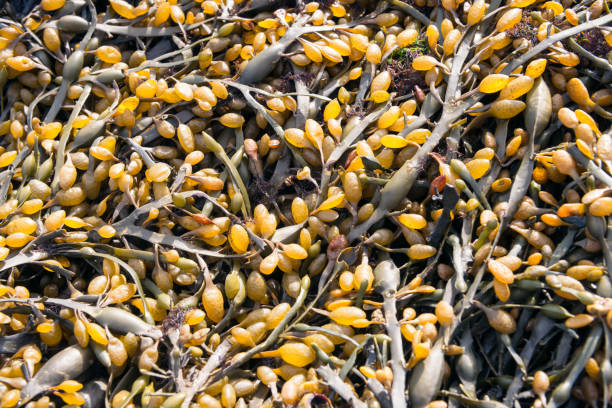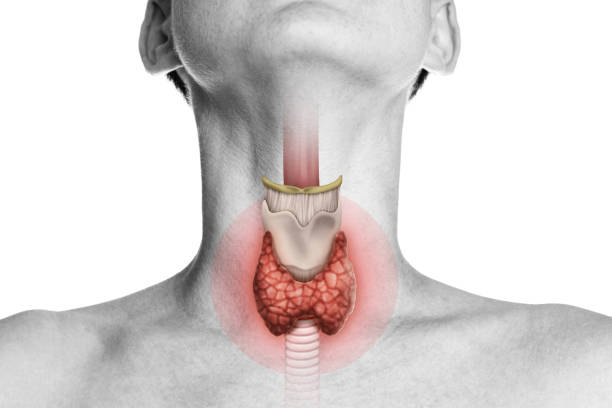Bladderwrack, or Fucus vesiculosus, is a type of brown seaweed that has been used medicinally for thousands of years. Black tang, rock wrack, rockweed, red fucus, and dyers fucus are some of the other names for this plant.
Bladderwrack, a common seaweed that can reach heights of 35 inches (90 cm), is found in the North Sea, Baltic Sea, and along numerous coastlines in the United States and Canada.
Common uses in conventional medicine include the treatment of obesity, joint pain, aging skin, iodine deficiency, urinary tract infections, digestive problems, and thyroid malfunction (both hyperthyroidism and hypothyroidism). For many, the same question comes to mind; What is Bladderwrack good for?
Despite the fact that bladderwrack's supposed health benefits have been called into question, many people continue to ingest it due to its remarkable nutrient profile, and the general sea moss and bladderwrack benefits.
Despite the fact that bladderwrack's supposed health benefits have been called into question, many people continue to ingest it due to its remarkable nutrient profile, and the general sea moss and bladderwrack benefits.
The benefits and drawbacks of using bladderwrack are discussed in detail on this page.

Bladderwrack Composition
Many different cultures have relied on seaweed as a primary source of nutrition for hundreds of years.
Bladderwrack contains a wide variety of nutrients, including vitamins A and C, calcium, iodine, magnesium, potassium, salt, zinc, and more.
Reported Health Benefits
Bladderwrack has been touted as a cure-all for everything from obesity and arthritis to infertility and UTIs, but scientific data is lacking.
The beneficial effects of bladderwrack on the thyroid and the skin have received the lion's share of the scientific attention.

Bladderwrack and The Thyroid
Bladderwrack contains iodine, which promotes healthy thyroid function by increasing production of triiodothyronine (T3) and thyroxine (T4), two thyroid hormones. Hormones play an important part in ensuring normal growth and development of the body and mind and in keeping the metabolism functioning normally.
Putting on weight, exhaustion, certain skin conditions, as well as poor body thermoregulation are all symptoms of iodine deficiency issues.
Iodine deficiency in developing nations, hypothyroidism is more prevalent than in industrialized nations like the United States. Hypothyroidism is firmly associated with Hashimoto's thyroiditis, also known as autoimmune thyroiditis.
Bladderwrack is rich in iodine, a mineral that helps maintain a healthy thyroid, but excessive supplementation or consumption of the seaweed could be detrimental.
It is generally safe for individuals in good health to consume high quantities of iodine. Whether hyperthyroidism or hypothyroidism was caused by iodine deficiency or another factor, iodine deficiency may exacerbate symptoms, thus proving the bladderwrack benefits for weight loss.
Consult your doctor before starting to take bladderwrack pills.
Bladderwrack as an Anti-Inflammatory
Several credible sources attest to the high levels of antioxidants in bladderwrack, including fucoxanthin, alginic acid, fucoidans, phlorotannins and vitamins A and C.
Antioxidants like phlorotannins and fucoxanthin have been widely lauded for their efficacy in neutralizing free radicals. Toxic chemicals called free radicals have been linked to premature aging, persistent disease, and cellular damage.
Several in vitro and in vivo studies have found that brown algae, and bladderwrack in particular, exhibit anti-inflammatory effects that may help inhibit tumor growth, stabilize blood sugar, and lessen the likelihood of cardiovascular disease.
Consistent use of seaweed, which includes components comparable to those in bladderwrack, has been shown to reduce the risk of cardiovascular disease by 12% according to a large study comprising 40,707 men and 45,407 women.
Only this and one other human study show any improvement in blood sugar control at all. Bladderwrack may have anti-inflammatory effects, but further research is needed.
Bladderwrack for Skin Benefits
Topical applications of bladderwrack have been used to heal wounds, reduce cellulite, and rejuvenate aging skin.
Antioxidants in bladderwrack may help minimize cellulite, speed up the healing process, and slow down the aging process of the skin by stimulating collagen production.
When applied to skin samples, bladderwrack extract increased collagen formation by 228%, whereas the control group had no change at all.
The second phase involved skin testing on human upper limbs for 12 weeks using a combination of bladderwrack extract and other algal extracts. Cellulite and adipose thickness were both considerably decreased in a study comparing an algae mixture to a placebo.
Previous studies using topical treatments using 1% bladderwrack extract enhanced collagen production.
Bladderwrack has a high antioxidant concentration; hence it helped preserve collagen and elastin in human skin samples. Avoiding the breakdown of elastin and collagen is essential for keeping one's youthful appearance.
Despite these findings, however, there have been no large-scale studies involving humans. There are also no clinical trials showing that bladderwrack improves skin health. Several phytochemicals are also present. The lack of antioxidants in the body causes oxidative stress, which may be mitigated by consuming plant substances like phlorotannins and fucoxanthin.
The high fiber content of bladderwrack aids in gastrointestinal health. Fucoidans and alginic acid, both of which have been demonstrated to be healthful, are found in especially high concentrations in this food.
Side Effects & Precautions
Many people assume that bladderwrack is risk-free, yet it is possible that it could have undesirable effects.
The topical application of bladderwrack is probably safe. However, it shouldn't be applied to cuts, and you should stop using it if you break out in a rash.
Bladderwrack is one type of seaweed that is considered safe for human consumption in very small quantities. Because of the high levels of iodine, salt, and heavy metals it contains, its usefulness as a dietary supplement is being questioned.
One example is an elderly man who, while treating his bipolar disorder with lithium and bladderwrack, acquired hyperthyroidism. His thyroid regulation reverted to normal when he stopped using bladderwrack.
Women who are expecting or nursing may also be at danger if they drink bladderwrack. Consult your doctor before eating or drinking bladderwrack. Bladderwrack supplements are similarly not recommended until their safety has been established.
Some medications and supplements, such as ginkgo biloba, valerian root, and St. John's Wort may not mix well with bladderwrack.
Consult a medical professional before using bladderwrack.
Dosage and Different Types
There are many varieties of bladderwrack that you can buy.
Bladderwrack is available in dry, powdered, and capsule form from supplement stores and certain websites. It's also a popular type of tea.
Insufficient studies have been conducted to determine an appropriate bladderwrack dosage. Conversely, some studies have shown doses as low as 10mg when combined with other metabolic supplements can have a positive impact.
Making bladderwrack tea is as easy as steeping one tea bag in 8 ounces (236 mL) of boiling water for four to five minutes. Desiccated bladderwrack can also be prepared by adding 1 teaspoon (5 mL) to a pot of boiling water, returning to a boil, and then reducing heat to a simmer for 10 to 15 minutes.
Until more research on the safety of bladderwrack is done, it is recommended to eat no more than 2 cups (500 mL) each day to avoid ingesting excessive levels of its active ingredients, which include iodine.
Final Thoughts
Bladderwrack is a type of seaweed that has been used medicinally for centuries and is also edible. It can be purchased as a supplement, in teas, or in dry and powdered form.
There isn't a lot of evidence to support the claims that bladderwrack can heal everything from obesity and joint pain to infertility and UTIs.
Its strong antioxidant concentration, however, may stimulate collagen formation when applied topically and is a solid anti-inflammatory when ingested, both of which are beneficial to skin health.
Individuals with medical issues such as thyroid disorders or who are taking specific medications should check with their doctor before consuming bladderwrack due to its high iodine content. Since there is not enough scientific studies done on it, it should be avoided by pregnant and breastfeeding women.
Before supplementing with bladderwrack, you should check with your doctor to make sure it's safe for you to do so.






